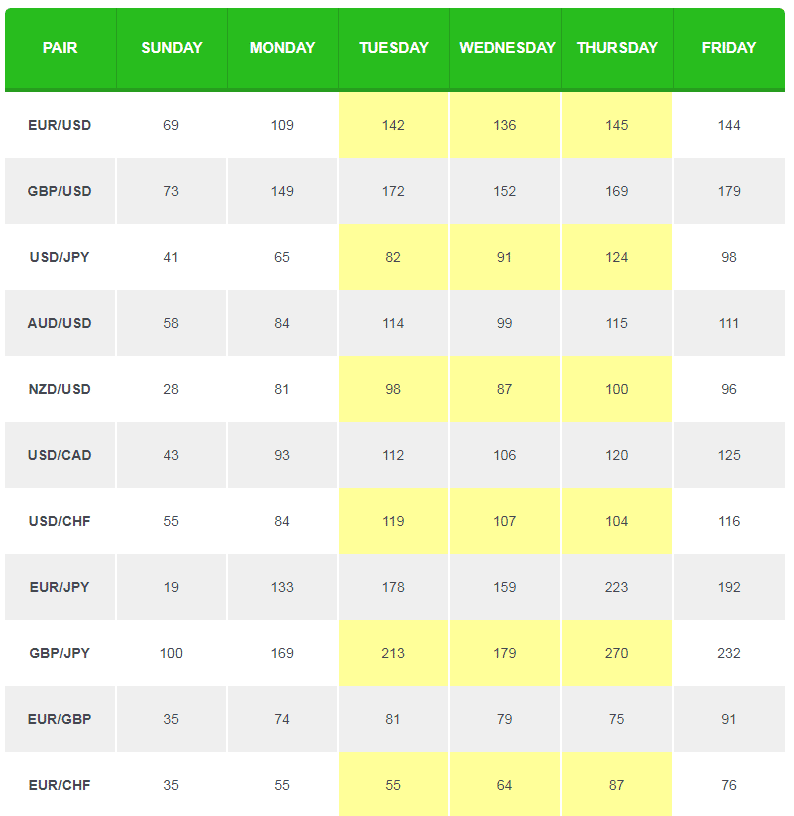
Market makers are a service that offers quotes for the sell and purchase prices of a tradable commodity in the world equities trading. They aim to maximize their profits through the bid-ask spread, turn and other means. This article will discuss the different types market makers. There are many things you could do to begin your journey as market maker. In this article, we will cover the primary market makers, the competitive market makers, and the other MMs.
Primary Market Maker
The primary market maker must register in a security before it is announced. A primary market maker must meet certain criteria set by the NASD. These criteria include the time at the inside ask and the ratio of the marketmaker's spread to that of an average dealer, as well as 50 percent of marketmaker quotation updates without execution. The Exchange can terminate registration of market makers if they fail to meet these criteria. This process could take several years.
Generally, a Primary Market Maker is appointed for a particular options class on the Exchange. Each Primary market maker must make specific performance promises, including minimum average quote size and maximum quotation spread. Listed options have the highest liquidity and are traded most frequently. These commitments will be used to assign a Primary Market maker by the exchange. These rules contain a number other requirements. A primary market maker must act reasonably in order to meet the requirements of the rules.

Competitive Market Maker
A "competitive marketmaker" is a market maker pre-designated that commits to providing more liquidity than the market chooses endogenously to achieve desired efficiency. In the context of the NEEQ market, this concept impacts price efficiency in two ways. It lowers transaction costs and encourages efficient trading by reducing spread width. This informational cost refers to the social cost of completing trades. A market maker who is competitive can reduce this informational expense while improving welfare.
The ability to beat a competitor's price within a specific range is called a competitive market maker. Historically, a market maker would buy a stock from a retail customer at the inside bid and sell it at the same price as another market maker. In this way, the retail broker was able to fulfill their obligation of providing the best execution. In addition, the inside Nasdaq quotation represents the retail transaction's average price. The term "competitive marketplace maker" has many benefits.
Secondary Market Maker
The market maker must list a stock/option in order to allow it to be traded on the exchange. The Market Maker is required to honor orders and to update quotations in response to market changes. The Market Maker must correctly price options contracts. He must not make more than $5 in difference between the offer price or bid price. The Exchange may set additional limitations on the Market Maker's activities. Its obligations include maintaining a list of available trades and providing marketing support.
Market makers have two main purposes. They keep the market running smoothly and ensure liquidity. Investors can't unwind their positions if they don't have these firms. The Market Maker purchases securities from bondholders, and makes sure that shares of companies are available for purchase. Market makers, in essence, act as wholesalers on the financial markets. Below is a list listing active market makers for each sector.

Other MMs
Market makers play a key role in keeping the market working. They are responsible for buying and selling stocks and bonds to maintain a balance between supply and demand. How can you tell if your broker is also market maker? These are the things you should look out for when selecting a market maker.
Some Market Makers do not meet their continuous electronic quoting obligations. Some Market Makers are only subject to quoting requirements in certain markets. These include the SPX. If you do not meet these requirements, your account can be suspended by the Exchange. This is particularly important for market-makers that operate on the floor. Because of their size, or lack thereof of infrastructure, some Market Makers might not be required to provide continuous electronic quotations. It could have an impact on your account's liquidity.
FAQ
What is the difference between a broker and a financial advisor?
Brokers are people who specialize in helping individuals and businesses buy and sell stocks and other forms of securities. They handle all paperwork.
Financial advisors are experts on personal finances. They can help clients plan for retirement, prepare to handle emergencies, and set financial goals.
Banks, insurance companies or other institutions might employ financial advisors. You can also find them working independently as professionals who charge a fee.
Consider taking courses in marketing, accounting, or finance to begin a career as a financial advisor. Also, it is important to understand about the different types available in investment.
Why is it important to have marketable securities?
An investment company exists to generate income for investors. It does this by investing its assets into various financial instruments like stocks, bonds, or other securities. These securities have attractive characteristics that investors will find appealing. These securities may be considered safe as they are backed fully by the faith and credit of their issuer. They pay dividends, interest or both and offer growth potential and/or tax advantages.
The most important characteristic of any security is whether it is considered to be "marketable." This is how easy the security can trade on the stock exchange. Securities that are not marketable cannot be bought and sold freely but must be acquired through a broker who charges a commission for doing so.
Marketable securities include government and corporate bonds, preferred stocks, common stocks, convertible debentures, unit trusts, real estate investment trusts, money market funds, and exchange-traded funds.
These securities can be invested by investment firms because they are more profitable than those that they invest in equities or shares.
What are the advantages of owning stocks
Stocks are more volatile that bonds. The stock market will suffer if a company goes bust.
However, if a company grows, then the share price will rise.
For capital raising, companies will often issue new shares. This allows investors buy more shares.
To borrow money, companies can use debt finance. This allows them to access cheap credit which allows them to grow quicker.
If a company makes a great product, people will buy it. As demand increases, so does the price of the stock.
As long as the company continues to produce products that people want, then the stock price should continue to increase.
What is a Stock Exchange?
Companies can sell shares on a stock exchange. This allows investors to purchase shares in the company. The market determines the price of a share. The market usually determines the price of the share based on what people will pay for it.
Investors can also make money by investing in the stock exchange. Investors are willing to invest capital in order for companies to grow. They do this by buying shares in the company. Companies use their funds to fund projects and expand their business.
There can be many types of shares on a stock market. Some are known simply as ordinary shares. These are the most common type of shares. These are the most common type of shares. They can be purchased and sold on an open market. The prices of shares are determined by demand and supply.
Preferred shares and debt securities are other types of shares. When dividends become due, preferred shares will be given preference over other shares. The bonds issued by the company are called debt securities and must be repaid.
What is a REIT?
An entity called a real estate investment trust (REIT), is one that holds income-producing properties like apartment buildings, shopping centers and office buildings. These are publicly traded companies that pay dividends instead of corporate taxes to shareholders.
They are similar to a corporation, except that they only own property rather than manufacturing goods.
What is a Mutual Fund?
Mutual funds are pools that hold money and invest in securities. They offer diversification by allowing all types and investments to be included in the pool. This reduces risk.
Professional managers manage mutual funds and make investment decisions. Some funds let investors manage their portfolios.
Most people choose mutual funds over individual stocks because they are easier to understand and less risky.
Statistics
- Our focus on Main Street investors reflects the fact that American households own $38 trillion worth of equities, more than 59 percent of the U.S. equity market either directly or indirectly through mutual funds, retirement accounts, and other investments. (sec.gov)
- Even if you find talent for trading stocks, allocating more than 10% of your portfolio to an individual stock can expose your savings to too much volatility. (nerdwallet.com)
- The S&P 500 has grown about 10.5% per year since its establishment in the 1920s. (investopedia.com)
- Ratchet down that 10% if you don't yet have a healthy emergency fund and 10% to 15% of your income funneled into a retirement savings account. (nerdwallet.com)
External Links
How To
How to create a trading strategy
A trading plan helps you manage your money effectively. This allows you to see how much money you have and what your goals might be.
Before you begin a trading account, you need to think about your goals. You might want to save money, earn income, or spend less. You might want to invest your money in shares and bonds if it's saving you money. You can save interest by buying a house or opening a savings account. You might also want to save money by going on vacation or buying yourself something nice.
Once you know what you want to do with your money, you'll need to work out how much you have to start with. It depends on where you live, and whether or not you have debts. It's also important to think about how much you make every week or month. Income is what you get after taxes.
Next, save enough money for your expenses. These expenses include bills, rent and food as well as travel costs. These all add up to your monthly expense.
Finally, figure out what amount you have left over at month's end. This is your net discretionary income.
This information will help you make smarter decisions about how you spend your money.
Download one from the internet and you can get started with a simple trading plan. You could also ask someone who is familiar with investing to guide you in building one.
Here's an example spreadsheet that you can open with Microsoft Excel.
This shows all your income and spending so far. You will notice that this includes your current balance in the bank and your investment portfolio.
And here's another example. This was created by an accountant.
This calculator will show you how to determine the risk you are willing to take.
Remember: don't try to predict the future. Instead, think about how you can make your money work for you today.